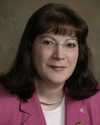Insights...News about faculty and their research
Leadership expert joins faculty

Tesluk
Paul Tesluk, PhD, joined the faculty of the School of Management this summer as the Donald S. Carmichael Professor of Organizational Behavior. A prolific researcher and leader in his field, Tesluk has focused on strategies to enhance team effectiveness and innovation, the assessment and development of management and leadership talent, and organizational culture and climate in organizations transitioning to high-involvement workplace systems.
Tesluk's articles have been widely published in top-tier academic publications, such as the Academy of Management Journal, Journal of Applied Psychology and Personnel Psychology. He has received awards from the Society for Industrial and Organizational Psychology for his research on work team effectiveness and work experience and leadership development.
Formerly the Tyser Professor of Organizational Behavior, and chair of the Human Resource Management Department in the Robert H. Smith School of Business at the University of Maryland, Tesluk served as co-director of the school's Center for Leadership, Innovation and Change.
A Fellow of the Society for Industrial and Organizational Psychology, Tesluk is also the program chair-elect of the Organizational Behavior Division of the Academy of Management. He serves on the editorial boards of several leading academic journals in the management field, including the Journal of Applied Psychology, Personnel Psychology and Organization Science.
Tesluk has worked with numerous private and public sector organizations in both research and consulting capacities and his research has been supported by such agencies as the National Science Foundation and the National Institutes of Health. His consulting activities have been in the areas of leadership development, organizational transitions to high-involvement work practices, work team design and performance, organizational climate and performance, and performance management and reward system design.
While earning doctorate and master's degrees from Penn State, Tesluk majored in industrial/organizational psychology and minored in management and organization. He also has a bachelor's degree from Cornell University, where he majored in industrial and labor relations.
Tax fraud and money laundering

Andreozzi
Three faculty members in the School of Management's Department of Accounting and Law are warning tax return preparers: Be aware of a new court ruling that could lead to substantially higher criminal penalties for false returns.
Adjunct instructor Randall Andreozzi collaborated with Arlene Hibschweiler, associate professor, and Martha Salzman, assistant professor, in outlining the court case and its possible repercussions for a recent issue of The Tax Adviser, the professional magazine published by the American Institute of CPAs. Andreozzi, a partner with the law firm of Andreozzi Fickess LLP, was one of the attorneys representing the taxpayers in the case United States v. Yusuf.

Hibschweiler
"Taxpayers who mail or e-file their tax returns and knowingly understate their taxable income may be exposing themselves to the same money laundering charges levied against drug dealers and financiers of international terrorism," Salzman says.
The Third Circuit ruled that unpaid taxes, retained by filing a false return through the U.S. mail, constitute proceeds of mail fraud. The defendants in the case allegedly skimmed revenues from their legitimate supermarket operations in the Virgin Islands and filed gross receipts tax returns that did not report the skimmed income.
"At the heart of Yusuf is the definition of the term 'proceeds,'" Hibschweiler says. "The Yusuf court interpreted the term broadly to encompass the business's tax savings or tax liability avoided on the unreported gross receipts."

Salzman
By ruling that the unpaid taxes are proceeds of mail fraud, the court opens up the possibility that defendants can be charged with international money laundering offenses, with penalties of 20 years or more in prison and the forfeiture of any assets involved in or traceable to the money laundering.
"Given these heightened stakes, tax advisers need to be alert to potential developments regarding this issue and advise their clients to obtain legal advice as soon as it appears that a case may involve criminal charges," the authors advise. In addition, preparers should "tighten their practices and procedures for ensuring the accuracy of information reported on and the methods used for filing tax returns."
Digital divide widens

Talukdar
The "digital divide" —the gap in Internet access and usage due to socioeconomic factors— is increasing, according to research recently published in the Communications of the Association for Information Systems.
Debabrata (Debu) Talukdar, associate professor of marketing in the School of Management, and Dinesh K. Gauri, PhD '07, assistant professor of marketing in Syracuse University's Whitman School of Management, compared survey data from the past decade and found that, while Internet access in the U.S. has increased significantly, the digital divide has actually widened in several key dimensions, including income and urban-rural separation.
By late 2009, about 75 percent of U.S. adults were using the Internet, compared to about 48 percent in 2000. Despite this increase, there has been no significant change in access and usage based on age, gender and education. Younger people, men and those with a college education remain more likely to use the Internet in their homes.

In terms of income, race and urban vs. rural residents, the digital divide has actually become greater in the past decade. The researchers found that people with higher incomes had a 60 percent higher likelihood of home Internet access than those in the next lower income group, an increase from 40 percent at the beginning of the decade. In addition, Internet access in African-American homes is 60 percent less than in Caucasian households, and rural residents have 40 percent less access than urban dwellers. In both cases, the gap is significantly broader than earlier in the decade.
Talukdar says that this research can have implications for both business and public policy. "For businesses, our study is directly relevant to their strategic goal of matching media with target markets by evaluating the effectiveness of Internet media across different target market segments," he says.
"As for the public policy goal to achieve an effective and equitable 'cyber society,' a study like ours can help prioritize relevant policy targets and initiatives," Talukdar says. "For instance, in the U.S. context, our findings underscore the issue of urban-rural digital divide as a key area for evaluation of past policy initiatives and for prioritization of future initiatives."
Who should control inventory in the supply chain?

Ru
Having a vendor control the amount of inventory a retailer holds is the most beneficial business arrangement, according to a study co-authored by Jun Ru, assistant professor of operations management and strategy in the School of Management.
Consignment is a popular way for retailers to do business, in which the supplier retains ownership of the inventory and gets paid by the retailer based on the numbers of units sold.
Ru and a fellow researcher compared two models of consignment: Retailer Managed Consignment Inventory (RMCI), with the retailer choosing the inventory level at the time it decides on the retail price, and Vendor Managed Consignment Inventory (VMCI), in which the supplier chooses the inventory level together with the consignment price.
"Traditionally, the retailer makes the inventory decision, but there is often uncertainty, so the retailer will order less," Ru says. "With VMCI, the supplier has control of the inventory, so the supplier may give an incentive to the retailer to sell it, such as a lower price.
"Selling at a lower price benefits everyone in the supply chain," Ru says. "The retailer sells more of the product, which ultimately benefits the supplier, too."
Many big retailers, such as Wal-Mart, Target and Ahold USA, have implemented or are considering the implementation of VMCI arrangement, the authors write. "This study supports this move, as it demonstrates that this business arrangement is beneficial to all parties in the supply chain," Ru says.
Ru's research, conducted with Yunzeng Wang, professor, Dean's Distinguished Scholar in Supply Chain Management and associate dean, A. Gary Anderson Graduate School of Management, University of California, Riverside, was recently published in the European Journal of Operational Research.
Three faculty members awarded for accomplishments
Three School of Management professors were recognized for their professional accomplishments.

Cohen
Ann Burstein Cohen, associate professor of accounting, received the Dr. Emanuel Saxe Outstanding CPA in Education Award from the New York State Society of Certified Public Accountants (NYSSCPA), which recognizes accounting educators for distinguished service, excellence in teaching and promotion of the accounting profession. She also received the Distinguished Service Award from the Buffalo Chapter of the NYSSCPA for her contributions to both the chapter and the profession.
A member of the NYSSCPA since 1982, Cohen has served as president, president-elect, secretary and member of the executive board of the NYSSCPA Buffalo chapter, which honored her with its Distinguished Service Award in 1997. She is founder and chair of the Buffalo Career Opportunities in the Accounting Profession Program (COAP), jointly sponsored by the NYSSCPA and the School of Management, which introduces minority high school students to the accounting profession.

Lindsey
Charles Lindsey, assistant professor of marketing, received the UB Exceptional Scholars Award for Young Investigators, which recognizes untenured researchers whose work has garnered universal acclaim or been completed under the auspices of a prestigious fellowship grant.
An expert in consumer behavior, Lindsey has published numerous research papers on this topic, such as how brand information and messages are processed and remembered. His work has been cited in national media, including MSNBC, CBC and Fox News. He joined the faculty in 2006.

Treadway
Darren Treadway, associate professor of organization and human resources, received the Milton Plesur Excellence in Teaching Award from the UB undergraduate Student Association, which recognizes a faculty member's commitment to students and quality of teaching.
Treadway has published research papers on social skills and organizational support in job performance, bullying in groups and global organizations, and political skills in organizations. He joined the faculty in 2007 and received the UB Exceptional Scholars Award for Young Investigators in 2009.
